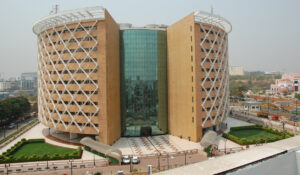India Sees GCC Surge in Q2 2025; Kolkata, Nagpur, Pune Join the Fray
India’s Global Capability Center (GCC) ecosystem continued its upward trajectory in the second quarter of calendar year 2025, with over 16 new GCCs established across the country, signalling strong investor confidence and a deepening reliance on India’s technology and talent backbone.
While mature hubs such as Bengaluru and Hyderabad remain top choices for GCCs—adding over six and five new centres respectively—other cities are also emerging as important urban centres, driven by improving infrastructure, access to skilled talent, and robust government support. Kolkata, Nagpur and Noida have each added at least one new GCC, while Pune has attracted more than two during the April-June period.
North America continues to be the leading source market, accounting for over 10 of the new GCCs launched in Q2, followed by Europe and Asia-Pacific, according to Nasscom Insights. These centres are primarily focused on high-impact functions including AI/ML, product engineering, IT products and solutions and technology modernisation.
India remains a strategic hub for global enterprises looking to scale their innovation and digital transformation agendas, but what’s notable is the growing interest in locations beyond the key cities, driven by cost advantages, talent availability, and state-led infrastructure initiatives.
Among the emerging centres, Pune, already a mature hub for IT and manufacturing, continues to build on its reputation. Besides its rapidly growing infrastructure—including tech parks and connectivity via the Mumbai-Pune Expressway—a large talent pipeline, fed by premier engineering and management institutes, has made Pune a preferred choice.
Kolkata, long seen as an under-leveraged market in the tech ecosystem, is now attracting attention. With new GCC activity in Sector V and New Town, the city is leveraging its IT hub, backed by robust metro connectivity and a vast talent pool, to reposition itself as an attractive destination for IT-enabled services. Policy initiatives focused on digital infrastructure and ease of doing business are beginning to yield results.
Meanwhile, Noida’s strategic location and infrastructure readiness are making it a compelling alternative to Gurugram for some multinational firms. Nagpur, too, is emerging as a hub for logistics and IT, driven by its strategic location.
Several factors are fuelling this new phase of GCC expansion. Infrastructure development and digital connectivity are lowering entry barriers for global firms to explore newer cities. Additionally, central and state governments are actively promoting IT parks, SEZs, and startup ecosystems to boost employment and economic growth.
As operating models evolve to prioritise agility, sustainability, and resilience, companies are no longer limiting themselves to the traditional triad of Bengaluru, Hyderabad and Chennai.
The next phase of GCC growth may well be shaped not just by these cities but by a broader urban landscape.


















